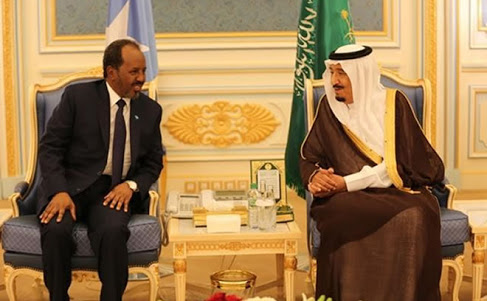Somalis across the globe are shocked as their government sinks to a new low
Under a new agreement Somalia is sending between 600 and 1,000 domestic workers to Saudi Arabia in time for Ramadan. The month of fasting usually brings an increase in the demand for domestic workers as employers often host large iftar meals to break their fast. This can mean long hours for the workers and more cases of overwork and abuse.
Over the last decade we have documented a plethora of abuses against domestic workers in Saudi Arabia, as well as other Gulf states. Domestic workers report that employers confiscate their passports to keep them from leaving and make them work excessive hours with no rest breaks and no days off.
Many say the employers don’t pay them their full salaries, if at all, that employers won’t let them leave the house, and often leave them without adequate food. In some cases, the employers abuse domestic workers psychologically, physically, or sexually.
Major gaps in the Gulf countries’ labor laws coupled with unethical recruitment in home countries foster exploitation and violence. The Gulf countries’ kafala (sponsorship) system ties migrant workers’ residency permits to “sponsoring” employers. Domestic workers need the consent of the employer if they want to change jobs, and those who leave before the end of their contracts can be imprisoned, fined, or deported.
Steps taken by the Saudi government to address these problems have been ineffective. An online Saudi web portal, Musaned, set up to help address domestic worker grievances, doesn’t allow them to file complaints online and doesn’t even provide the addresses of labor offices where they can file complaints.
Over the years, several countries of origin have pushed for better working conditions for their citizens who go to Saudi Arabia to work. Some governments – most recently Indonesia and Uganda – have banned their citizens from working in Saudi Arabia altogether.
But restrictions and bans by countries of origin have just led Gulf States and recruitment agencies to seek out workers from countries, particularly in Africa, with weaker legal protection – like Somalia.
Bans have also not been effective and often cause workers to circumvent them at even greater risk. However, countries of origin can take measures to improve protection for their citizens working abroad.
The Somali Deputy Labour Minister, Osman Libah Ibrahim, recently told Human Rights Watch that the government plans to ensure its embassy in Saudi Arabia registers new arrivals and stays in contact with them. That will be helpful, but more will be needed to protect domestic workers from abuse and respond to those who have problems.






comments (0)